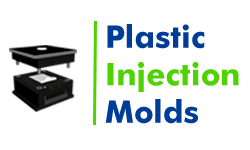Pvc Mould Manufacturer Reduce The Time And Mate Effective

With the fast expansion of the medical business, an increasing number of medical technology and gadgets are extensively used in everyday life. Because plastic parts manufacturer medical devices are multifunctional and can be combined with other materials such as metal to create a stronger medical product, medical plastic injection moulding has become the ideal material for all types of medical moulding devices that are extensively utilised in electronic parts. Here are some of the advantages of medical plastic injection that we can provide:
- Produced items in large quantities
- Weight reduction
- increased adaptability
- Lower cost
The medical plastic injection technique is distinguished by its low-cost, high-volume manufacturing runs. This type of medical plastic injection moulding enables us to produce plastic medical equipment that require uniformity and close tolerances. This medical plastic injection moulding procedure is also commonly employed in the fabrication of prototypes for medical equipment utilised in laboratory testing.
Plastic injection moulding is a well-known industrial method that produces millions of pieces every day.
Many typical components are made from thermoplastics and thermosetting polymers by the manufacturer of the plastic moulded parts, such as bottle caps, storage containers, medical equipment, electrical casing, toys, and so on. This enhanced method can now manage multi-material injections to improve density, stiffness, or to produce colours, transparency, and textures for a specific specification.
pvc moulding, on the other hand, has been built to create enormous numbers of the same product because that is their primary aim. Once modified, the entire process must be reviewed on a regular basis to ensure that the end product's attributes are maintained. Plastic components are often examined for appearance, mechanical resistance, and waterproofness.
Furthermore, attaining the correct geometry for a desired plastic item is sometimes a lengthy process including numerous optimisation phases for the material, the mould form, and the factors influencing solidification. Even as simulation tools get more capable, many aspects are still improved through prototype measurements and analysis. The aim for PVC mould manufacturers is to reduce the time spent improving the process in order to reduce manufacturing lead times.
What exactly are mobile dental X-rays?
A portable dental X-ray machine is a portable X-ray device that does not require any wall-mounted equipment. These X-ray machines are becoming more popular in every dental office across the world since they are a more cost-effective and space-saving alternative to fixed ones because of plastic parts manufacturing companies.
Handheld X-rays were first employed in scenarios such as a military field hospital, dentistry triage crises, and forensics. In 2005, the general use of this X-ray for dental practice was allowed made up of mould plastic. This battery-powered, portable handheld X-ray is meant to be carried in the operator's hand throughout exposure, alleviating the need to adjust the arm.
Plastic injected components are highly suited to industrial X-Ray Computed Tomography.
Even while standard inspection methods such as Coordinate Measuring Machines (CMM) measurements or optical scanning might produce fascinating findings, they may need to be supplemented with X-Ray CT in many cases.
Because of the low density of typical materials, X-Ray CT is especially well suited for plastic moulding parts. X-Rays may readily penetrate polyamide, polycarbonate, polyester, polypropylene, and polyethene and determine low artefacts. It implies that obtaining the inner and outer dimensions of components will be no problem for X-Ray CT technology: regardless of the size of the sample, findings will be extremely precise and acquired faster than with conventional approaches.
Unlike other technologies, X-Ray CT does not require any special preparation of the sample to be evaluated. There is no need for spray, stickers, or a probing programme before starting a scan; all that is required is a decent orientation and an appropriate sample container to accept the part within the system. Then, in a completely automated manufacturing line, everything may be mechanised and well-integrated.
With plastic mould manufacturers X-Ray CT, it is also feasible to simply construct a mesh from exterior and interior components. Point clouds can then be utilised as input parameters within a finite element model to compare to an existing CAD file or to construct a new CAD through a reverse engineering process.
The X-Ray CT results are quite beneficial for the injection moulding process in the business.
X-Ray CT and high-quality standard RX solutions systems can produce a wide range of outcomes. Metrology reports, voids and inclusions investigations, assembly studies, flush and gaps observations, wall thickness repartitions, and fibre orientation data are all included.
When it comes to the plastic moulding companies, one of the most important uses of X-Ray CT is mould design optimization. It is one of the most difficult jobs to do while starting a new plastic part production line. In order to adjust the mould geometry, warpage and shrinkage must be measured and considered. X-Ray CT is thus one of the greatest approaches to retrieving the inner and outside shapes of an injected prototype. It is simple to produce a three-dimensional mesh of the entire part, compare it to the Computer Aided Design (CAD) model, and adjust the corresponding mould based on the discrepancies.




